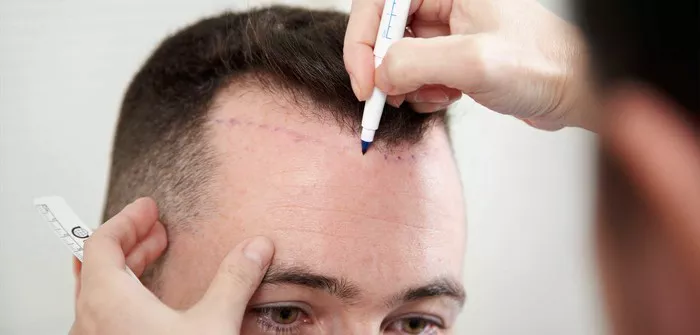Hair loss is a concern that can affect individuals at various stages of life, and for some, it may become apparent as early as their early twenties. When faced with the prospect of losing hair at a young age, the question of whether to pursue a hair transplant can be a significant decision. This article aims to explore the considerations and factors involved in the decision-making process, specifically focusing on the question: Should I get a hair transplant at 22?
Understanding Early-Onset Hair Loss
Hair loss in one’s early twenties can be emotionally challenging and impact self-esteem. Early-onset hair loss is often attributed to a combination of genetic factors, hormonal changes, and lifestyle influences. It’s important to recognize that hair loss patterns can vary widely among individuals, and the decision to pursue a hair transplant is a highly personal one.
Assessing the Severity of Hair Loss
Before contemplating a hair transplant at 22, it is crucial to assess the severity of hair loss. In some cases, individuals may experience minimal thinning or recession that may not warrant immediate intervention. Consulting with a hair transplant professional for a thorough evaluation can provide insights into the extent of hair loss and whether a transplant is a suitable option.
Stabilizing Hair Loss: The Role of Medications
For individuals experiencing early-onset hair loss, it’s essential to consider whether the progression of hair loss can be stabilized through medical interventions. FDA-approved medications, such as finasteride and minoxidil, have shown efficacy in slowing down or halting hair loss in some cases. These medications may be recommended before considering more invasive procedures like a hair transplant.
Age as a Factor in Hair Transplant Suitability
While age is a factor in determining the suitability of a hair transplant, it is not the sole criterion. At 22, individuals may still experience fluctuations in hair loss patterns, and the long-term stability of their hair loss should be a primary consideration. A reputable hair transplant professional will assess the individual’s unique situation and provide guidance on the most appropriate timing for the procedure.
Emotional Readiness and Expectations
Deciding whether to get a hair transplant at 22 goes beyond the physical aspects of the procedure. Emotional readiness and realistic expectations are crucial factors. Hair transplant results take time to fully manifest, and individuals should be prepared for a gradual improvement rather than immediate, dramatic changes. A thorough consultation with a qualified professional can help manage expectations and address concerns.
The Importance of a Professional Consultation
Before making a decision about a hair transplant at 22, individuals should schedule a consultation with a qualified and experienced hair transplant professional. During this consultation, the professional will assess the individual’s hair loss pattern, overall health, and discuss potential treatment options. A transparent discussion about the risks, benefits, and realistic outcomes of a hair transplant will empower the individual to make an informed decision.
Considering Future Hair Loss
One challenge with getting a hair transplant at a young age is anticipating future hair loss. Hair loss is often a progressive condition, and individuals may continue to lose hair in non-transplanted areas. Planning for potential future hair loss is essential to ensure a balanced and natural-looking result. A strategic approach may involve designing a hairline that accommodates future hair loss patterns.
Financial Considerations
Another aspect to consider when contemplating a hair transplant at 22 is the financial commitment involved. Hair transplants can be a significant investment, and individuals should assess their financial readiness for the procedure. Understanding the costs associated with the initial transplant and potential future procedures, as well as factoring in post-transplant care, is essential for making a well-informed decision.
Alternative Solutions and Lifestyle Changes
Before committing to a hair transplant at 22, individuals may explore alternative solutions and lifestyle changes that could positively impact their hair health. These may include adopting a healthy diet, managing stress, and incorporating scalp health practices. While these measures may not reverse genetic hair loss, they can contribute to overall well-being and potentially slow down the progression of hair loss.
See Also: [Revealed!] Can a Completely Bald Man Get a Hair Transplant?
Conclusion: A Personalized Decision-Making Process
In conclusion, the decision to get a hair transplant at 22 is highly individualized and involves careful consideration of various factors. Assessing the severity of hair loss, exploring non-invasive treatments, and consulting with a qualified professional are essential steps in the decision-making process. Emotional readiness, realistic expectations, and financial considerations play crucial roles in determining whether a hair transplant is the right choice at a young age. Ultimately, the decision should be made after a thorough evaluation of individual circumstances and in consultation with experienced professionals in the field of hair restoration.


